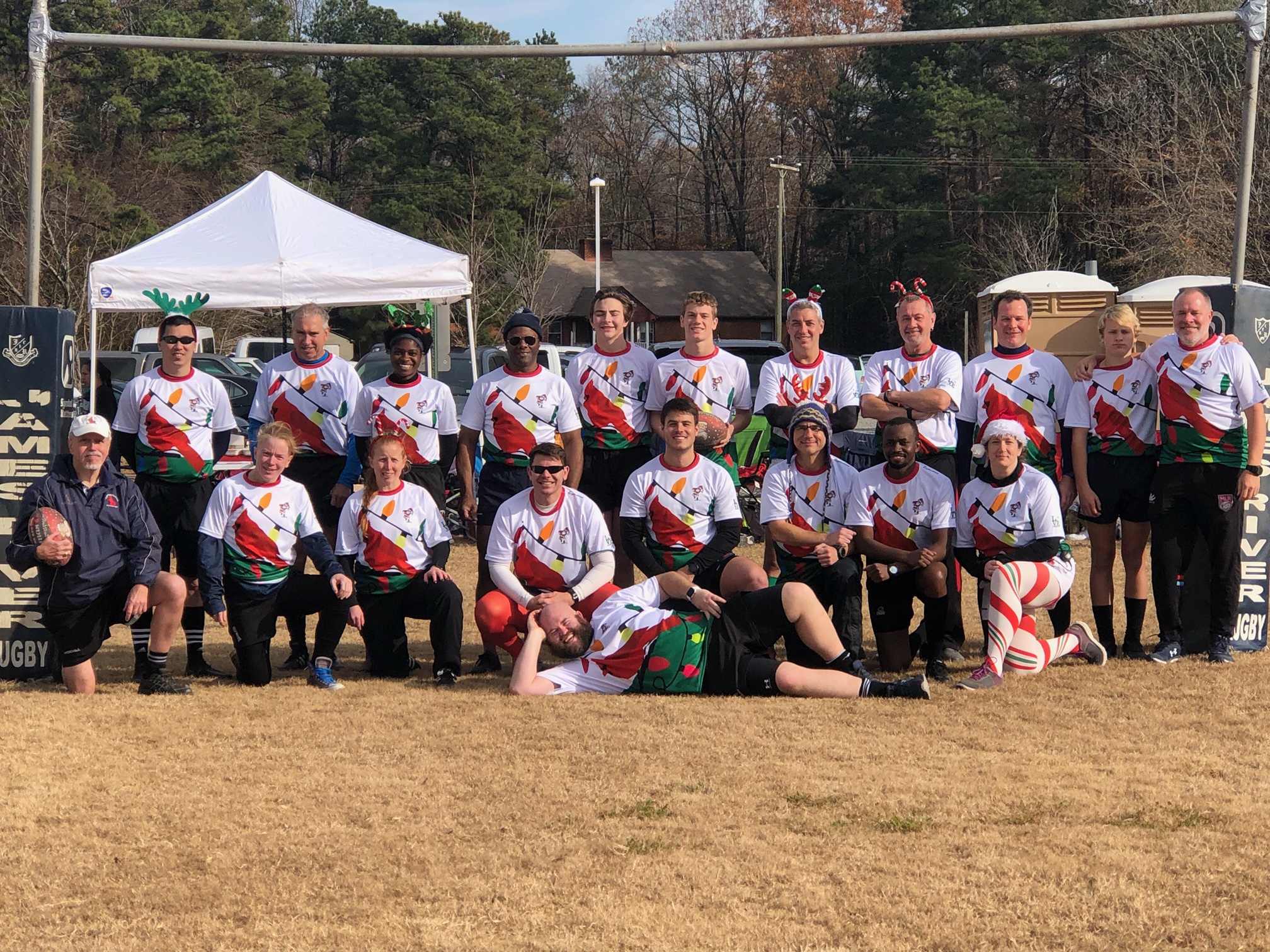USA Rugby Referee Abuse Policy (PDF).
From the document:
Definition:
Referee Abuse includes, but is not limited to:
● Any intentional, but nonconsensual, contact with any Match Official;
● Verbal and nonverbal communication which contains foul or abusive language or which implies or directly threatens physical harm or injury of any sort to any Match Official;
● Any threat of damage to or damage to a Match Official’s personal property;
● Repeated instance of on-field player dissent (as defined in the World Rugby Laws); Repeated questioning of calls during ongoing match play, whether to the center referee or to an AR, by those otherwise permitted to be in the playing enclosure (replacements, coaches, trainers, e.g.). Only individuals who may raise questions with calls are head coaches and captains. Questions should be posed in a respectful manner directly to the center referee. A captain may politely speak to a Match Official during a match; a coach may politely speak to a Match Official before and after the match;
● After being warned, as provided in this rule, any failure of any player, coach, administrator, medical and support personnel, or fan to immediately leave the playing enclosure or technical zone on the request of any Match Official;
● Sexual or violent gestures and/or kicking or throwing objects in response to the Match Officials’ call, non-call, or other action in officiating the match.
Referee abuse is not limited to on-pitch behavior:
● Abuse may happen at any time that the Match Official is acting in their duties, and may include arriving to and leaving the Match location.
● Abuse may happen may through questioning/impugning honesty/integrity of match officials away from pitch.
From USA Rugby’s Sideline Protocols and Disciplinary Policy:
REFEREE ABUSE: Team Coaches, Team Staff or Team Substitutes
Verbal abuse directed at match officials or players should not be tolerated and the following process should be followed:
a. The referee will walk to the sideline on the halfway line. Call the head coach to the halfway line, and instruct them to ask the identified person to refrain from their behavior. If the identified person is the head coach, the referee addresses them directly or may ask the team captain to assist.
b. On the second occasion the referee will EJECT the person from the grounds.
c. A zero tolerance approach should be applied and if the person refuses to leave the referee should request that team’s captain to assist.
d. Failing compliance the referee abandons the match.
e. NOTE: The referee restarts the game according to the latest stoppage and does NOT award a penalty due to the sideline behavior.
REFEREE ABUSE: Spectators
Verbal abuse directed at match officials or players should not be tolerated and the following process should be followed:
a. The referee will walk to the sideline on the halfway line. Call the home team head coach to the halfway line, and instruct them to ask the identified person to refrain from their behavior.
b. On the second occasion the referee will instruct the coach to EJECT the person from the grounds.
c. A zero tolerance approach should be applied and if the person refuses to leave the referee should request that team’s captain to assist.
d. Failing compliance the referee abandons the match.
e. NOTE: The referee restarts the game according to the latest stoppage and does NOT award a penalty due to the sideline behavior.
DISCIPLINARY ACTIONS AND PROCEDURES
USA Rugby has a policy of Zero Tolerance regarding sideline misconduct. Any behavior that might constitute misconduct on the part of player substitutes, coaches, and spectators should be reported to the appropriate disciplinary body and be reviewed and adjudicated pursuant to USA Rugby Disciplinary Procedures.
USA Rugby Disciplinary Procedures are established in order to secure and maintain consistency in the way in which discipline is administered and uniformity in the way n which Foul Play and Misconduct are dealt with at all levels of play of the sport of Rugby within the United States of America as intended by World Rugby in the promulgation of WR Regulations 17, 18, and 20.
While Foul Play and Misconduct are defined by World Rugby regulations, the initial responsibility and jurisdiction for the administration of these Disciplinary Procedures and for the initial adjudication and determination of appropriate disciplinary sanctions (if any) is held by the local Organizing Body most immediately responsible for sanctioning a competition (which currently includes LAUs, GUs, College Conferences, and SBOs.) Every local organizing body should familiarize itself with these procedures, and have in place systems, such as Foul Play and Misconduct reporting, that ensure proper and effective administration.
World Rugby Regulation 20.4(b) defines Misconduct to include: Acting in an abusive, insulting, intimidating or offensive manner towards referees, assistant referees, Citing Commissioners, members of Disciplinary Tribunals or
other officials or any person associated with the Host Union, the Rugby Body or the Unions participating in the
Match or spectators


